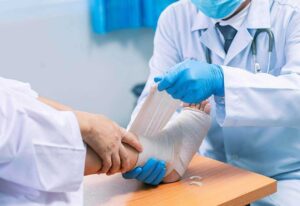Why you should care about Pre & Post-natal physiotherapy?
Postpartum is one of the most challenging as well as tiring periods in the life of a mother, especially new moms. Sleepless nights and clueless about many things related to the newborn, the period is extremely weary for moms. Added to this are the postnatal mental and physical issues. Due to the changes in hormones and rapid rearrangement your nerves and muscles underwent to giving birth, your body is likely to face issues like pelvic pain, severe muscle cramps, etc. This is when you need the care of a physio. An experienced physiotherapist can assist you with your post-natal care by alleviating your symptoms faster and helping speed up postpartum recovery.
Post-natal physiotherapy is one of the most ignored things after delivery. Almost all the health care consultations that a new mom gets are just about the baby and if at all there is something left for the mom’s health it is largely to counter mental issues related to delivery. Giving birth to a baby, your body undergoes drastic changes in a very little amount of time. Delivering the bay distorts your muscles, nerves, and other internal organs which will be back to normal after some time. But some mothers face difficulties and take a long time to get back to normal. post-natal physiotherapy will help them to bring back their body to normal fast, especially after a C-section.
When you consult a physiotherapist after delivery, you will undergo a complete physical assessment for any possible issues in your musculoskeletal system, especially your pelvic floor and the abdominal area which undergo drastic stretching while giving birth. Pelvic-perineal dysfunctions are increasingly becoming a common issue after delivery. It is estimated that about 20 percent of first-time moms experience severe pelvic floor muscle injury even after having a normal delivery.
Your post-natal physiotherapy care includes:
– Postnatal physio education on the current changes in your body & how to cope with them.
– Pelvic floor rejuvenation exercises & medication if necessary depending on your condition.
– Resolving bowel & urination issues.
– Learning the correct way to do workouts without causing any further damage to your body.
– Strengthening of abdominal muscles.



